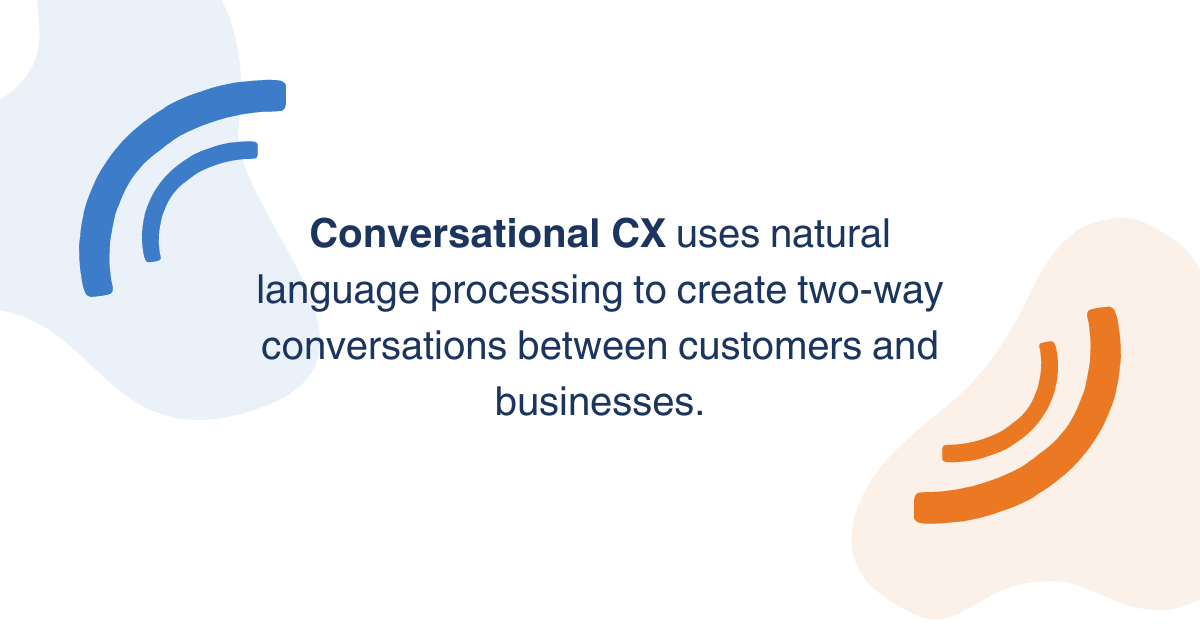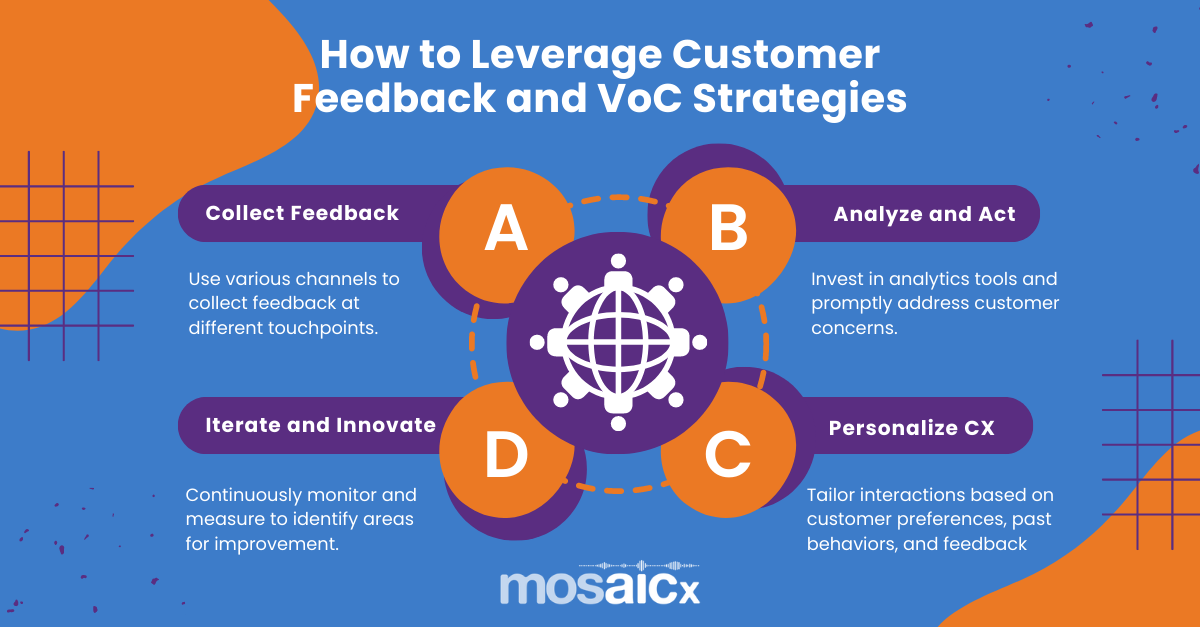12 Call Center Metrics You Should Be Using to Improve CX in 2025
Call center metrics are the most important performance indicators that monitor how effectively your call center is running. This includes anything...
3 min read
![]() Mosaicx
:
July 12, 2023
Mosaicx
:
July 12, 2023

In today's competitive business landscape, delivering exceptional customer experiences has become a crucial differentiator for companies across industries. Conversational customer experience (CX) is an emerging approach that focuses on creating meaningful interactions and personalized engagements with customers.
In this blog post, we will delve into the concept of conversational CX, its inherent value, and explore how companies can leverage customer feedback and voice-of-the-customer (VoC) strategies to achieve their conversational CX goals.
Additionally, we will discuss the role of customer experience AI and intelligent virtual agents (IVAs) as tools to capture customer feedback and enhance decision-making processes.
Conversational CX uses natural language processing to create two-way conversations between customers and businesses. This can be done through a variety of channels, including chatbots, voice agents, and messaging apps.
The goal of conversational CX is to go beyond transactional exchanges and provide customers with a more personalized, convenient, and engaging experience. By using natural language, businesses can create conversations that feel more like a conversation with a human than a traditional customer service interaction. This can help to build trust and loyalty with customers, and ultimately lead to increased sales and revenue.

Instead of using menus to group customers into buckets, conversational CX allows customers to communicate in their own words, on their terms, even if they're not talking to a live agent. Your customer service tools use this natural language and customer history to enable seamless and context-aware interactions.
Customer voice serves as the cornerstone of conversational CX. At every point in their journey, a customer should be able to express their own voice. That includes customer feedback.
Customer feedback provides valuable insights into customer preferences, pain points, and expectations. VoC strategies encompass the systematic collection, analysis, and utilization of customer feedback to shape CX initiatives. Here's how companies can leverage customer feedback and VoC strategies effectively:

Customer Experience AI and IVAs play a crucial role in achieving conversational CX by facilitating feedback collection and analysis. These technologies offer benefits such as:
Implementing an IVA is like having your best agent on every call. Mosaicx created a great example of an IVA providing conversational CX for an insurance customer who was recently in a car accident.
Conversational CX holds immense value for companies striving to deliver exceptional customer experiences. By leveraging customer feedback and implementing robust VoC strategies, organizations can gain a deeper understanding of customer preferences and expectations, leading to more personalized and engaging conversations.
Customer experience AI and IVAs like Mosaicx further enhance the feedback collection process, enabling real-time analysis and actionable insights.
By embracing conversational CX and leveraging customer feedback, companies can build strong customer relationships, drive brand loyalty, and stay ahead in today's competitive market.

Call center metrics are the most important performance indicators that monitor how effectively your call center is running. This includes anything...

Businesses across industries have changed or evolved over the decades, but one thing that has remained the same is that their growth is pretty much...

Customers have several major expectations from modern businesses, but none is as challenging as them reading your mind to anticipate support you...